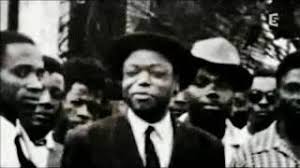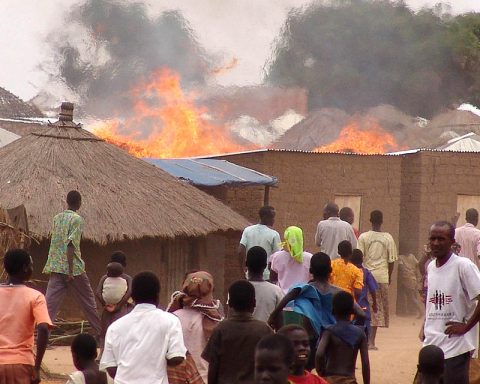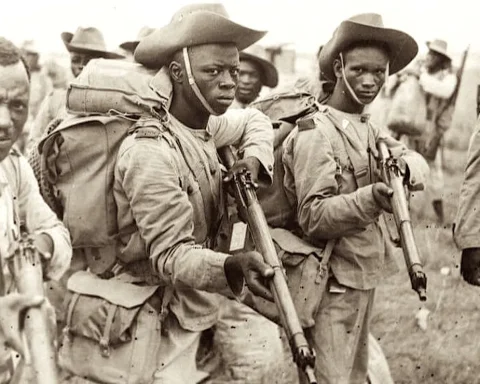The tales of colonial resistance are packed with stories of men who led bravely. We read of leaders like Jaja of opobo and Jomo Kenyatta, and the few tales of women like Moremi who fought for the freedom of her people are just being told.
This four series article was written to highlight men and women who fought and resisted colonial rule in their countries.
The final part of this series is dedicated to telling the story of Ruben Um Nyobè.

Ruben Um Nyobè, this Cameroonian anti-colonial activist, was a major figure in African independence, albeit his unpopularity.
He was born in 1913 in Cameroon, while Cameroon was divided between France and the United Kingdom.
When he was 26, he completed his bachelor’s degree and married his wife. As a civil servant, his interest in law and politics only kept growing. In 1947, he joined the Confédération générale du travail (CGT), a union devoted to fighting against the division of Cameroon into French and English speaking regions.
Soon enough, Um Nyobè and other members of the CGT began advocating independence and going as far as denouncing the Catholic church that supported colonialism and slavery. As a result of his efforts, he was able to unite diverse ethnic groups in the fight against colonialism.
In 1945, during a strike demonstration that turned violent, members of the community opened fire that in deaths and because of this, a new set of activists picked up the baton with Um Nyobè as the general secretary of the Union.
In April 1948, he worked in the founding of the Union des populations du Cameroun (UPC) by trade unionists and by November 1948, he was chosen as the head.
In 1955, a new French High commissioner, Roland Pré, came to Cameroon with the intention of wiping away the UPC and Um Nyobè as a result of the fact that they were gaining popularity.
The French government eventually banned the UPC on July 13, 1955. They then began a hunt to find Um Nyobè, who had gone into hiding in his native region.
Around September 13 1955, his hideout was discovered courtesy of his companions who, under torture, exposed him. That day, the French shot him dead and dropped his body in concrete to disfigure him and root out the idea of independence from the minds of Cameroonians.
- French authorities destroyed most of his writings and banned Cameroonian residents from speaking his name. He died at the age of 45.





